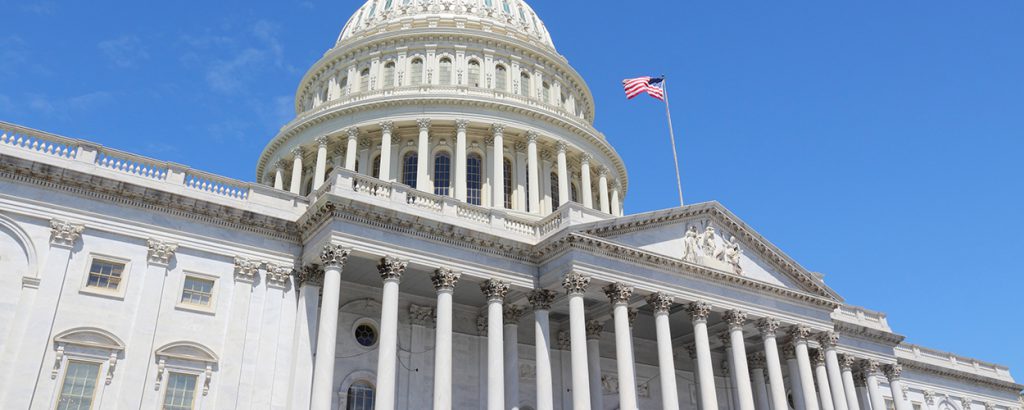This website uses cookies so that we can provide you with the best user experience possible. Cookie information is stored in your browser and performs functions such as recognising you when you return to our website and helping our team to understand which sections of the website you find most interesting and useful.
Business News Digital Labels & Publishers Legal
US music industry welcomes proposed SMART Copyright Act
By Chris Cooke | Published on Monday 21 March 2022

The music industry has welcomed proposed copyright reforms in the US that would basically increase the obligations of safe harbour dwelling digital platforms, mainly by empowering the country’s Copyright Office to identify and approve “standardised technical measures” that platforms should utilise in order to stop the distribution of unlicensed copyright protected content.
The proposals are contained in the SMART Copyright Act – or the Strengthening Measures To Advance Rights Technologies Copyright Act if you prefer – which has been put together by senators Thom Tillis and Patrick Leahy, both members of the Senate IP Subcommittee.
The two Congress members state in a document outlining their proposals: “Online service providers struck a deal with Congress 20 years ago – they wouldn’t have to pay for copyright theft facilitated by their systems if they worked with copyright owners to create effective standardised technical measures to identify and protect against distribution of stolen content”.
“In enacting this grand bargain”, they go on, “Congress clearly envisioned this safe harbour immunity would act as an incentive for platforms and rights-holders to collaborate on developing effective measures available to all on reasonable terms to combat piracy, lower transaction costs, accelerate information sharing, and create a healthy internet for everyone”.
But that didn’t work, they reckon. “Rather than incentivising collaboration on technologies to protect copyrighted works, the law actually inhibits it because service providers cannot risk losing their valuable safe harbours if an STM is created … The SMART Copyright Act of 2022 takes a measured approach to addressing these barriers to collaboration and adoption”.
Launching the proposals last week, Tillis said: “In the fight to combat copyright theft, there is currently no consensus-based standard technical measures and that needs to be addressed. I am proud to introduce this bipartisan legislation that will provide widely available piracy-fighting measures and create a trusted and workable internet for our creative communities”.
Meanwhile, Leahy added: “Nearly 25 years ago we enacted the Digital Millennium Copyright Act, a landmark update to the copyright laws for the internet age. Since then, the internet has significantly changed and with it so has the world of copyright. I’m excited to work, alongside Senator Tillis, with filmmakers, musicians, authors and artists of all stripes, enlisting the help of online platforms, to address online copyright theft that robs these artists of the fruits of their creativity and hard work”.
“The technology exists to protect against this theft; we just need online platforms to use the technology”, he went on. “I’m working hard to make sure our artists get paid, and we can enjoy legal access to their wonderful creations. I look forward to working with all realms of the copyright community to address the problem of copyright theft”.
The music industry, of course, has long been a critic of the copyright safe harbour and how it is employed by many digital platforms, calling for legal reforms in various countries, most notably as part of the 2019 EU Copyright Directive. So, unsurprisingly, reps for the music community welcomed last week’s proposals from Tillis and Leahy.
The CEO of the Recording Industry Association Of America, Mitch Glazier, said: “By encouraging cooperation between platforms and rights-holders, the SMART Copyright Act will incentivise the development and adoption of effective tools to address online piracy while giving platforms clarity”.
“This thoughtful proposal builds off nearly a quarter century of real-world experience under the DMCA and promises a big step toward balancing the interests of creators and tech companies in today’s integrated commercial marketplace”, he continued. “Congress intended that creators and platforms work together to protect copyright and consumers and this proposal achieves that goal”.
Meanwhile, David Israelite, CEO of the US National Music Publishers Association, added: “The DMCA for years has left songwriters and music publishers with few avenues to protect their work online. We applaud Senators Tillis and Leahy for their leadership to strengthen technical measures to hold giant tech platforms more accountable. This is a great first step towards fighting online piracy which continues to be a major threat to the livelihood of our creative community”.
But, needless to say, reps for the tech sector are less impressed with the proposals, with lobbying group the Re:Create Coalition dubbing Tillis and Leahy’s bill “very dangerous”.
The group’s Executive Director Joshua Lamel claimed that the SMART Copyright Act “will give the government the power to decide how Americans’ everyday digital products and services work, creating harmful consequences far beyond the realm of copyright law. From apps and the cloud to social media, blogging and video games, technical mandates will destroy online creativity, censor free expression online, hurt consumer choice and hold back new startups”.
“This bill will lead to filtering mandates”, he then added, “undermining the very purpose of copyright to promote creativity and progress. It should not move forward”.





